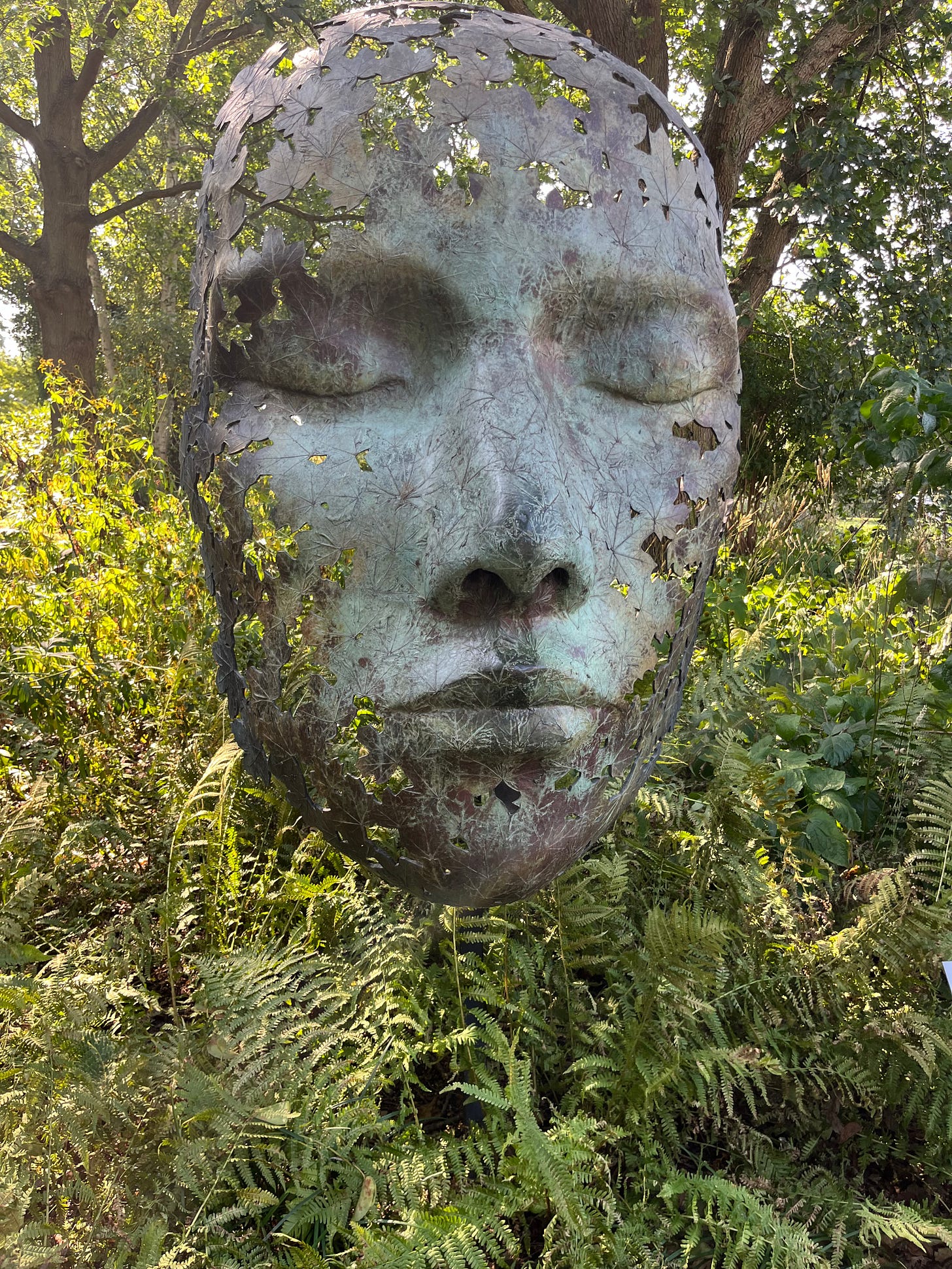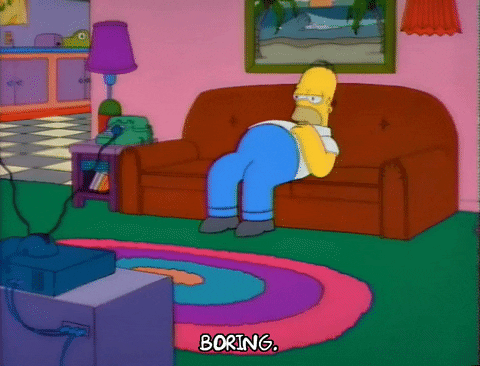· There’s one question that every writer is asked, often: ‘How do you get your ideas?’
· And maybe I’m giving away a trade secret here (please don’t expel me from the Magic Circle!) but when writers get together, they laugh at this question. In part because when you’re in the business of creating ideas, ideas come forth all the time. When you start training your mind to have ideas, it’s hard to stop them coming.
· But mostly they laugh (even – sorry – snigger) because the idea isn’t the half of it. It’s not even the tenth of it. Most ideas are not new or fresh or original – they don’t even need to be, to be good – but are derivative of a whole host of other ideas that came before it. You can say ‘derivative,’ you can also say: ideas are inspired by past ideas; they evolve and adapt to become more relevant to the time, or funnier or more well-honed.
· I interviewed an idea-maker recently (a storyteller, designer and futurist), who said that it can easily take thirty or forty years for a creative talent to find something to say that is truly their own.
· It’s making an idea work that is the testament of an author’s talent. The question people should really ask is: How do you make an idea work?
· Writers shouldn’t groan or snigger. I mean, it’s rude. And maybe they’re being smug: they know how to make ideas. But having recently emerged from a year where the ideas were not coming all the time – the first time in my life that I can remember that happening! – I can tell you that you do need to create the fertile space to help those ideas arrive.
· A blank piece of paper is the most stifling place for ideas. The blankness is more like a wall than a hole. Do not stare at blank pages and expect ideas to come.
· Instead look at something covered in colours, or crazy sketches, or colours, or other words… Or listen to music, or eavesdrop on a conversation, or walk in the woods. Prompts that allow your subconscious to run off and turn that idea into another one.
· An idea starts with a thing. It comes, in other words, from another idea. This is partly why it takes so long to come up with original ideas. Eventually, you will train your subconscious to offer up ideas seemingly out of nothing… It begins by attempting to look at existing things in an entirely new way.
· Everybody needs to know how to create ideas. Writers, artists, singers, poets – yes, of course. But also scientists, doctors, tech bros, cooks, gardeners. Someone trying to come up with a fresh way to do a packed lunch, paint the bathroom, rearrange the sofas, or arrange flowers in a vase. These are all versions of ideas brought to life.
· But coming up with ideas is hard work! Your conscious brain resists new ideas. People in jobs or lives that do not rely upon ideas perhaps are people who prefer to live in their conscious minds. Sometimes people need to suppress their subconscious (where pain and trauma often reside), or they can’t face the exhaustion of wearing their conscious brain down, telling it to step aside so that the subconscious can be heard. It’s easier not to think.
· That’s why we are addicted to our phones.
· My highly-scientific explanation for this (honorary doctorates will be accepted) is that everything in the body is designed to ensure survival. Thinking uses up a lot of energies/calories. The less a brain needs to think, the happier it is. Or, it thinks it is, because it’s surviving on the least amount of expended energy when not thinking.
· The conscious mind will resist new ways of doing things and embrace certainty over the unknown – even when it knows that the certain thing is not good for it. This is why habits and toxic relationships are so darned hard to break. If the brain is allowed simply to repeat familiar habits over and over again, ensuring minimal energy spend, it’s more content. Your brain wants to be that version of yourself that sits on the sofa all day long, watching the same TV show on repeat. Or scrolling on the phone, getting dopamine hits while doing nothing. (Drugs do this for us, too.)
· The subconscious, on the other hand, loves coming up with new ideas. But it has to be let out to play by the conscious mind. Your subconscious is that part of yourself that is the playful, clever, imaginative child. You need to treat it like the child that it is. Give it enough to eat and drink, and a place to play.
· Don’t tell it off for doing something differently. Let it know you’re open to all possibilities, and you’ll explore them all together. Let the subconscious know you’ll be respectful of the new idea and not dismiss it for being too silly.
· Nor can you shout at your subconscious and order it to come up with new ideas. The threat of needing to please someone or get a bill paid is the worst of all. It will resist, like a recalcitrant teenager, or be too frightened to come up with something that displeases you.
· Like a child, the subconscious responds well to routine and a safe place. You don’t have to wait for a random butterfly to flit past and inspire an idea. All you need to do is sit down every day, with a small routine – the time, the place, the desk, the writing pad – some little thing that the subconscious recognises as its invitation to come forward and tell you what it’s been quietly working on, or for you to hold hands and think of new ideas together.
· The subconscious loves to be set a problem but it has to be left alone to work it out. Don’t stand there, glaring at it, while it tries to come up with the solution. You’ll only make it freeze. Instead, make it think you’re not looking – go for a walk, cook something, drive somewhere. Try to do something that is low-level constructive but don’t make it difficult for the subconscious to tap you on the shoulder and tell you the answer.
· Ideas change when they leave your head. It’s very hard to translate them into concrete reality. And when other people hear or see your idea, they change it, too. When something is finished – a book, a painting, a song – this is an exciting part of the process. I don’t think a book I’ve written is complete until someone else has read it: I like how, in their head, my book becomes a whole new thing. They will visualise my characters differently, bring their own agendas to a character’s behaviour, pass judgement on a plot point. But if they do this to your idea before you are sure of it, then they will warp it, sometimes dilute it and make it harder for you to keep hold of that delicate process of translating it from your mind to the page or canvas. Try to keep your idea hidden from others until it has the strength to withstand the staring, and stay as you formed it.
· You can bore yourself with an idea if you talk about it before it’s been translated into a real-world concept. If you tell too many people the plot of your new novel, you’ll feel as if you’ve written it before you have.
· Or someone will say, ‘I’ve heard of something like that,’ and even though your idea will be different – whatever the similarities – you’ll lose interest or lose heart, and you’ll abandon your idea at that fragile stage when it’s half-ephemera, half-made.
· Between your head and the real world, your idea won’t look the same. It will change. This can be frustrating, because we usually think it looks or sounds worse than we planned, but it’s the process of bringing an idea to life that is the creative one. And that process takes experience, skill and time: that’s why we’re allowed to charge money for it.
If you have a creative life, any life that thinks of ideas, it’s a privilege. You have created a fertile garden for your subconscious to play in and give you fresh and new ideas to run with. Enjoy!
(And put down your phone.)
If you got this far, thank you. I hope you enjoyed my own idea to write about ideas. If you did, please click on the heart.
Love,
Jessica xx






Thanks for this. A series about ideas - how fun! So true that if you over-tell an idea you'll trick your mind into thinking it's done with it. Any benefit of sharing an idea (I find) depends upon who you're telling it to. The wrong listener - fizzle. The right one, and - even if they don't say anything - suddenly your thoughts are growing and tumbling and flipping around and changing and waving sparklers in your mind.
Omg, this is brilliant. (And perhaps explains why none of the ‘brilliant’ ideas I have for novels come to fruition - as soon as I explain the plot to my husband, I lose all interest in writing it 😂)